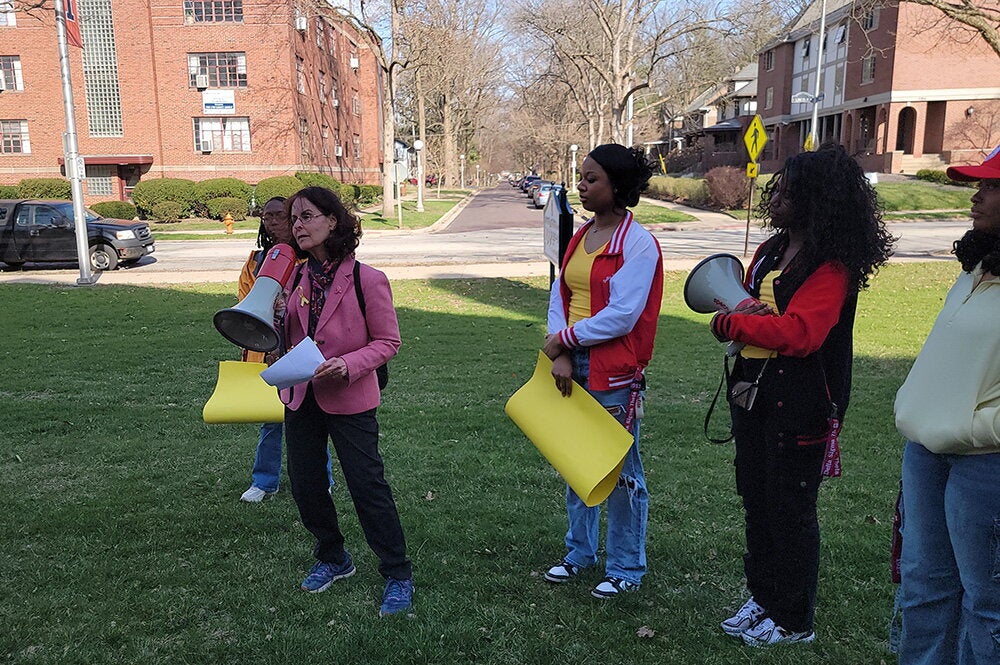

Baseball may be America’s favorite pastime, but in rankings of the most popular hobbies, reading is more consistently ranked highly. It’s not hard to see why: Reading is simultaneously engaging and relaxing, and it’s fun to do alone and with friends.
A team of researchers at the Beckman Institute for Advanced Science and Technology have uncovered yet another reason to love reading: it may help preserve memory skills as people — and their brains — grow older. Their work is reported in Frontiers in Psychology.
“Leisure reading, the kind that really sucks you in, is good for you, and it helps build the mental abilities on which reading depends,” said Beckman researcher Liz Stine-Morrow, who is also the director of the Adult Learning Lab, a faculty member in the Department of Educational Psychology, and the study's senior investigator.

One of these mental abilities is episodic memory, or memory for events, which allows us to remember what happened in previous chapters of a book and to make sense of the ongoing story. Another ability is working memory, the capacity to hold things in our minds as we engage in other mental processes. Working memory helps us keep track of things that happened in recent paragraphs as we continue reading.
Both episodic memory and working memory tend to decline as we get older, but habitual readers routinely practice these skills in different contexts.
“There’s a pretty robust literature showing that there’s a relationship between working memory and both language comprehension and long-term memory. Working memory seems to decline with age, but there’s a lot of variation, especially among older adults,” Stine-Morrow said.
A mystery surrounding the relationship between reading and memory is whether it’s reading that helps to improve memory or if strong working memory abilities improve reading comprehension skills. Knowing the direction of causality will have important implications on the types of treatments that can help preserve memory throughout one's life.
Stine-Morrow and the interdisciplinary team, which included Beckman researchers Daniel Llano, a professor of molecular and integrative physiology, and Aron Barbey, a professor of psychology, conducted a study to test the causal relationship between reading and memory. To start off, they needed a collection of interesting and engaging books — the kind that really suck you in — and decided to reach out to the experts at the Champaign Public Library’s Adult Services Department.
“We didn’t rely solely on popularity,” said Kristina Hoerner, the library's adult services manager at the time of the study. “We wanted to make sure that the list contained both familiar titles and books that the participants might not have discovered on their own. The list also contained a variety of genres from non-fiction to mystery to more complicated literary fiction.”
The research team distributed these books to older adult participants in the local community via iPads loaned out for the duration of the study. The iPads were also preloaded with a custom app that allowed participants to track their reading progress and answer additional questionnaires. Participants read for 90 minutes a day, five days a week, for eight weeks. A separate active control group completed word puzzles on their iPads instead of reading while tracking their progress with the same custom app.
“We controlled as much as we could between the activities except for the ‘magic juice,’” Stine-Morrow said, “which is getting immersed in a story.”
At the start of the study, participants came to The Adult Learning Lab at the Beckman Institute, where they were assessed for different cognitive skills, including working and episodic memory, as well as other verbal and reading skills. They were tested on these skills again at the end of the eight weeks.
The results were incontrovertible: in comparison to the puzzle group, the group that read books for eight weeks showed significant improvements to working memory and episodic memory. In other words, the study demonstrated that regular, engaged reading strengthened older adults’ memory skills.
The causal linkage between reading and memory opens several new avenues for future treatments for conditions such as Alzheimer’s disease.
“There's more promise in engaging fully in the stimulating things that we already do in our lives. That's probably the best pathway to maintaining our mental ability and offsetting the effects of Alzheimer's disease,” Stine-Morrow said.
Future work could explore longer-term benefits of reading or the possibility of tailoring a reading treatment to an individual’s personal taste in books.
For now, however, the message is clear. How can we stay mentally sharp as we age? Read a book.


